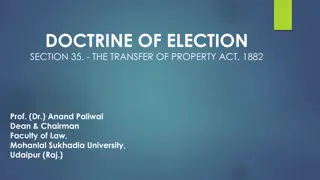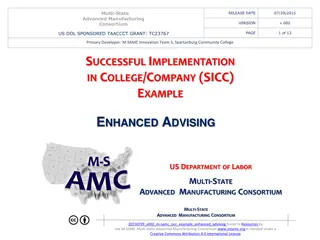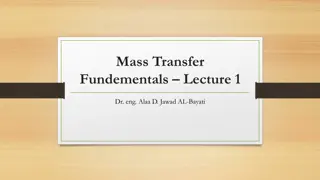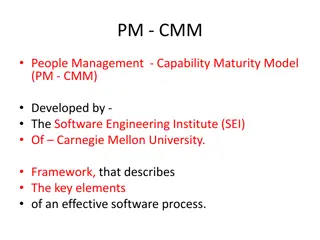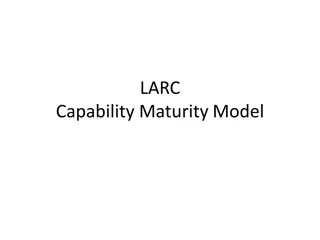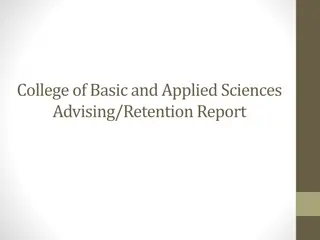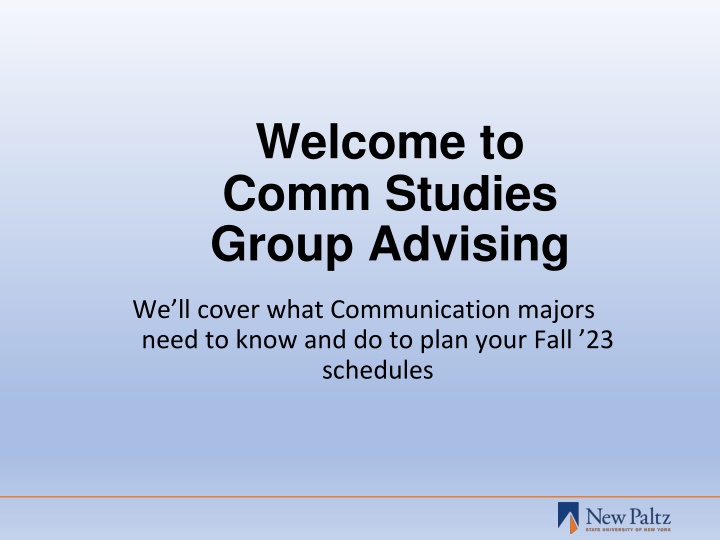
Communication Studies Major Overview & Concentrations
"Explore the Communication Studies major with three concentrations - Relational, Organizational, and Strategic Communication. Learn about required core courses, concentration specifics, and career opportunities in the communication field."
Download Presentation

Please find below an Image/Link to download the presentation.
The content on the website is provided AS IS for your information and personal use only. It may not be sold, licensed, or shared on other websites without obtaining consent from the author. If you encounter any issues during the download, it is possible that the publisher has removed the file from their server.
You are allowed to download the files provided on this website for personal or commercial use, subject to the condition that they are used lawfully. All files are the property of their respective owners.
The content on the website is provided AS IS for your information and personal use only. It may not be sold, licensed, or shared on other websites without obtaining consent from the author.
E N D
Presentation Transcript
Welcome to Comm Studies Group Advising We ll cover what Communication majors need to know and do to plan your Fall 23 schedules
Welcome to Group Advising! Here s how it will work Major overview; Concentrations Internship eligibility How to read the Progress Report Important dates My Schedule Planner quick tips Check for holds & confirm your time assignment
Communication Studies: One major with three concentrations Relational Communication (1:1 and small group) Organizational Communication (groups, organizations) Strategic Communication (PR)
Communication Majors (all) The major in Communication Studies emphasizes an understanding of communication principles and humanistic approaches to communication studies as well as the development of skills in organizational, relational and strategic contexts. The major provides a foundation for graduate work or for a career in any profession that deals with the public, such as politics, law, business, social work, or teaching. Required core courses (all concentrations).......15 credits CMM104 Public Speaking (3) CMM202 Interpersonal Communication (3) CMM315 Introduction to Strategic Communication (3) CMM353 Persuasion & Social Influence (3) CMM360 Organizational Communication (3)
Relational Communication Concentration in Relational Communication Professional communication skills course..........3 credits CMM302 Business & Professional Communication (3) Required methods course....................................3 credits Select one of the following: CMM352 Qualitative Communication Research Methods (3) CMM354 Quantitative Communication Research Methods (3) Concentration electives.........................................9 credits Select three of the following: CMM214 Storytelling & Culture (3) CMM325 Computer-Mediated Communication (3) CMM355 Nonverbal Communication (3) CMM359 Communication Among Cultures (3) CMM374 Language & Everyday Conversation (3) CMM379 Communication, Culture & Difference (3) CMM389 Perceptions of Diversity in Communication (3) CMM452 Communication & Gender (3) Elective courses....................................................6 credits, including at least 3 upper-division credits Capstone seminar................................................4 credits CMM455 Relational Communication Seminar (4)
Organizational Communication Concentration in Organizational Communication Professional communication skills course..........3 credits CMM302 Business & Professional Communication (3) Required methods course....................................3 credits Select one of the following: CMM352 Qualitative Communication Research Methods (3) CMM354 Quantitative Communication Research Methods (3) Concentration electives.........................................9 credits Select three of the following: CMM204 Small Group Communication (3) CMM318 Organizational Reputation & Stakeholder Engagement (3) CMM334 Communicating Corporate Social Responsibility (3) CMM362 Leadership & Communication (3) CMM374 Language & Everyday Conversation (3) CMM430 Training & Development (3) CMM450 Negotiation CMM452 Communication & Gender (3) Elective courses....................................................6 credits, including at least 3 upper-division credits Capstone seminar................................................4 credits CMM454 Organizational Communication Seminar (4)
Strategic Communication Concentration in Strategic Communication Professional communication skills course..........3 credits CMM231 Writing for Public Relations (3) Required methods course....................................3 credits Select one of the following: CMM352 Qualitative Communication Research Methods (3) CMM354 Quantitative Communication Research Methods (3) Intermediate concentration core........................9 credits CMM312 Design & Public Relations (3) CMM316 Strategic Public Relations Campaigns (3) CMM317 Social Media & Public Relations (3) Concentration electives.......................................6 credits Select two of the following: CMM318 Organizational Reputation & Stakeholder Engagement (3) CMM324 Crisis, Risk & Disaster Communication (3) CMM326 Environmental Communication (3) CMM334 Communicating Corporate Social Responsibility (3) CMM375 Social Change & Advocacy Communication (3) CMM451 Political Communication (3) Capstone seminar.............................................4 credits CMM456 Seminar in Strategic Communication (4)
Beyond the required courses, you choose Electives CMM 100:499 means ANY CMM course from 100-level through 499. CMM 300:499 means UPPER-Division CMM courses Consult the Schedule of Classes to see all our offerings and check any restrictions or pre-requisites
Communication Electives (for Comm students)
You need to know how to read the Schedule of Classes; it's full of important info! Main NP website: Newpaltz.edu > Academics > Schedule of Classes
Read the Description, Restrictions, Prerequisites for Each Course You Want
Internships are an Option for CMM Majors Options for Comm students are vast -- you can work virtually anywhere. We regularly see Comm students intern: For Non-profits In Human Resources departments As management trainees In Public Relations posts At agencies (media agencies, travel agencies, etc.) At banks, car rental companies, big department store chains, other retailers For small companies trying to establish themselves in their markets.
Interested? Must get certified eligible ONE SEMESTER before looking for an internship Once you have: 60 total credits (junior or senior) 30 credits at SUNY New Paltz (in progress or completed) 18 credits in the major (in progress or completed) 2.5+ GPA Then, APPLY FOR CERTIFICATION to look for an internship tinyurl.com/npinternpacket Do this as soon as you meet the criteria Once you are ELIGIBLE to seek an internship, begin your search: Instagram @npcommedia, Handshake, the BIG List: tinyurl.com/npbiglist Get placement approved by Internship Coordinator Nancy Heiz
Have you submitted the most recent Official Transcript, that shows final grades from this semester? Or shows you earned an Associate s degree? If not, please submit that BEFORE CLASSES BEGIN
Youll find many answers on our Hawksites blog: You ll find answers to common questions like how to declare a minor, how to do an internship, etc. Subscribe to updates and weekly newsletters: Comm News site -- https://hawksites.newpaltz.edu/comm/
Fall 23 Advising & Scheduling We ll work with you individually. Please help fellow students if you ve completed your draft schedule.
Follow these best practices for advising Get to know your major advisor. Beyond scheduling and policies, they can advise you on courses, grad school, internships, careers, etc. Become familiar w/Academic Calendar (ex: S/U deadlines; can t add courses after first week; all policies and forms are linked) https://www3.newpaltz.edu/calendars/ Use only New Paltz email account for any school matters Include your Banner (N) number on ALL emails about advising, schedules, registration, etc.
Understand Your Progress Report and the Path to Graduation
Check for HOLDS and clear them before you register In my.newpaltz.edu under General > Holds If you have an ACTIVE (red) HOLD that says it affects registration you MUST ADDRESS THAT in order to be permitted to register on your Time Assignment
Verify your Registration Time Assignment and mark it on your calendar Your Time Assignment is the actual day/time appointment you register yourself for classes. What we re doing here is preparing you for that. In my.newpaltz.edu under Registration > Time Assignment, there s a day and time That s the earliest you can register, but you should not wait any longer than that. Example:
We use My Schedule Planner to draft schedules Brief overview Always have back-up plans (several Favorites saved)
Time to review your schedule My Schedule Planner Speak up if there s something you aren t sure about This is a group advising session. We appreciate your patience!
When your schedule is drafted and you're waiting for your advisor to review it, discuss your plans with your fellow students. Tips and tricks to share? Need help getting started? Your advisor will review your draft and release you to register




